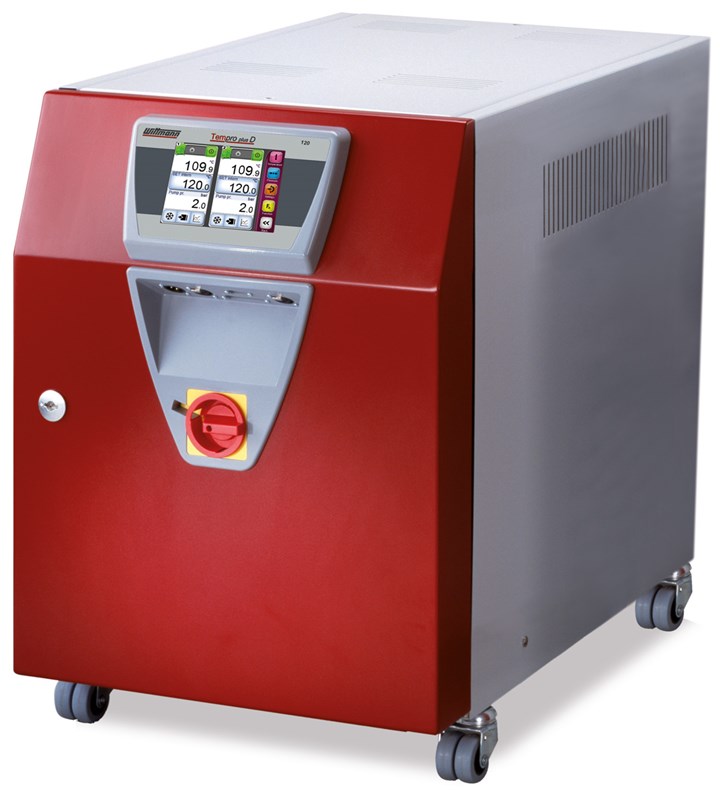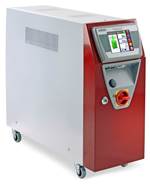Process Heating/Cooling: Directly Cooled Pressurized Temperature Control Unit
New single- and dual-circuit directly cooled models were added to a recently launched pressurized temperature control unit (TCU) line.
Building off the 2019 release of the Tempro plus D M100 pressurized temperature control unit (TCU), Wittmann Battenfeld is introducing directly cooled, pressurized TCUs, including its first directly cooled dual-circuit unit. As part of a virtual roll out of products it would have launched at the cancelled Fakuma event, Wittmann Battenfeld introduced the directly cooled Tempro plus D M120 in single- and dual-circuit versions. The company said the product launch was based on market research that revealed strong interest in a directly cooled pressurized unit of the same size as the Tempro plus D M100.

Wittmann Battenfeld has added single- and dual-circuit directly cooled temperature controllers to its line of pressurized TCUs.
Providing two independent temperature control circuits, the Tempro plus D M120 features a durable piston cooling valve to endure the high wear demands of direct cooling. The company says this valve can withstand the high number of switching cycles with less maintenance, providing longer service life than a conventional membrane cooling valve.
As standard, the Tempro plus D M120 supplies direct cooling capacity of 80 kW with an Delta T of 75C. In addition to the standard 9-kW heating capacity, models with capacities of 12 or 16 kW are also available. Wittmann notes that it only uses stainless steel pumps with wear-free magnetic couplings, which cover a range of maximum flow rates from 40 to 90 l/min. A frequency-controlled pump with 1.1 kW, 50 l/min, and 9 bar is also available.
Wittmann notes that the advantage of a frequency-controlled pump installed in the directly cooled Tempro model is flexibility in control parameters, with a choice of operations being dictated by motor speed, pressure or flow rate. The new Tempro comes with a Wittmann 4.0 interface as standard, enabling integration of the TCU into the work cell’s control system.
Related Content
-
System Offers 'Lights Out' Mold-Channel Cleaning & Diagnostics
New system automatically cleans mold-cooling lines—including conformal channels—removing rust and calcium, among other deposits, while simultaneously testing for leaks, measuring flow rate and applying rust inhibitor.
-
Troubleshooting Leaky Temperature-Control Units
Learn the causes, symptoms and remedies for TCU leaks to keep these vital contributors to plastics processing up and running longer and more efficiently.
-
North American Distribution for System to Track Cooling-Circuit Temperatures, Flow Rates
Globeius is now a North American supplier of Mouldpro’s Flosense 1.0 Flexible Flow Monitoring system for tracking manifold pressures and mold temperatures.











